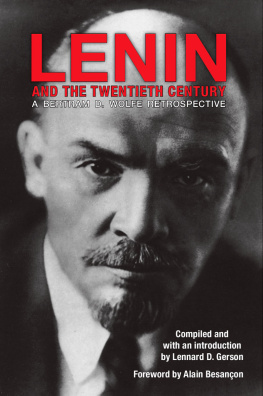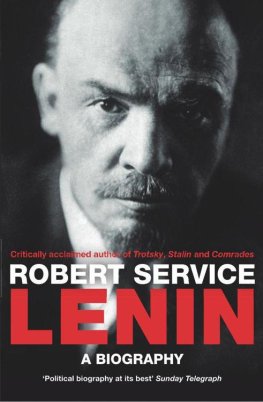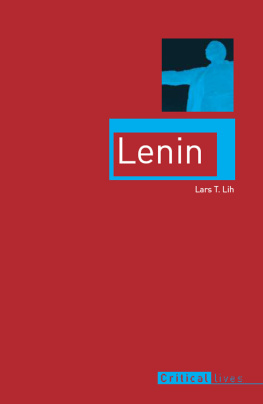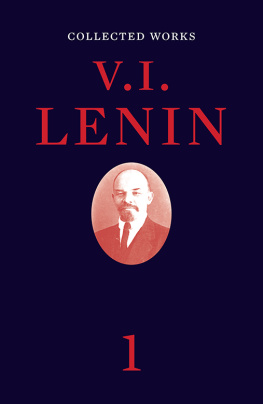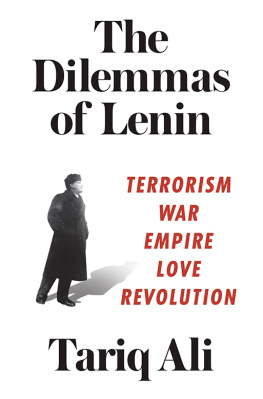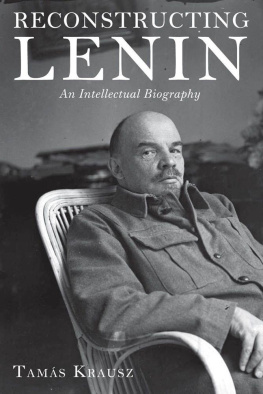HOOVER ARCHIVAL DOCUMENTARIES
General editor: Milorad M. Drachkovitch
The documents reproduced in this series (unless otherwise indicated) are deposited in the archives of the Hoover Institution on War, Revolution and Peace at Stanford University. The purpose of their publication is to shed new light on some important events concerning the United States or the general history of the twentieth century.
Herbert Hoover and Poland: A Documentary History of a Friendship
George J. Lerksi, compiler
Negotiating While Fighting: The Diary of Admiral C. Turner Joy at the Korean Armistice Conference
Allan E. Goodman, editor
Patriot or Traitor: The Case of General Mihailovich
David Martin, compiler
Behind Closed Doors: Secret Papers on the Failure of Romanian-Soviet Negotiations, 19311932
Walter M. Bacon, Jr., translator and compiler
The Diplomacy of Frustration: The Manchurian Crisis of 19311933 As Revealed in the Papers of Stanley K. Hornbeck
Justus D. Doenecke, compiler
War Through Childrens Eyes: The Soviet Occupation of Poland and the Deportations, 19391941
Irena Grudzinska-Gross and Jan Tomasz Gross, editors and compilers
Berlin Alert: The Memoirs and Reports of Truman Smith
Robert Hessen, editor
Lenin and the Twentieth Century: A Bertram D. Wolfe Retrospective
Lennard D. Gerson, compiler
The Hoover Institution on War, Revolution and Peace, founded at Stanford University in 1919 by Herbert Hoover, who went on to become the thirty-first president of the United States, is an interdisciplinary research center for advanced study on domestic and international affairs. The views expressed in its publications are entirely those of the authors and do not necessarily reflect the views of the staff, officers, or Board of Overseers of the Hoover Institution.
www.hoover.org
Hoover Institution Press Publication No. 293 1984 by the Board of Trustees of the Leland Stanford University
All rights reserved. No part of this publication may be reproduced, stored in a retrieval system, or transmitted in any form or by any means, electronic, mechanical, photocopying, recording, or otherwise, without written permission of the publisher.
First printing, 1984. First paperback printing, 1985.
Manufactured in the United States of America
16 15 14 13 12 11 8 7 6 5 4 3
Library of Congress Cataloging in Publication Data
Wolfe, Bertram David, 18961977. Lenin and the twentieth century.
(Hoover archival documentaries)
Includes bibliographical references and index.
1. Lenin, Vladimir Ilch, 18701924Addresses, essays, lectures. 2. Heads of stateSoviet UnionBiographyAddresses, essays, lectures. 3. RevolutionistsSoviet UnionBiographyAddresses, essays, lectures. 4. CommunistsSoviet UnionBiographyAddresses, essays, lectures. 5. CommunismSoviet UnionAddresses, essays, lectures. 6. Soviet UnionRevolution, 19171921InfluenceAddresses, essays, lectures. 7. Soviet UnionPolitics and government20th centuryAddresses, essays, lectures. I. Gerson, Lennard D. II. Tide. III. Title: Lenin and the 20th century. IV Series.
DK254.L4W593 1984 947.08410924 [B] 84-8931
ISBN-13: 978-0-8179-7931-7
ISBN-10: 0-8179-7931-X
ISBN-13: 978-0-8179-7932-4 (pbk.)
ISBN-10: 0-8179-7932-8 (pbk.)
Contents
Preface
Bertram D. Wolfe (18961977) was one of Americas foremost authorities on Soviet history and politics. Several generations of students in dozens of countries acquired their first understanding of the events and personalities that have shaped modern Russia from Wolfes landmark study, Three Who Made a Revolution. The twelve essays on Lenin and Leninism published in this volume were written during the last decades of Wolfes long life and reflect the unique blend of personal experience, thorough scholarship, and ideological commitment that informed all his writings. These essays, nine of which appear in print here for the first time, do not constitute an integrated or complete biography of Lenin.* It was Wolfes intention to write such a book, a sequel to Three Who Made a Revolution, but death claimed him before he could complete this project.
I was guided by two major considerations in compiling this collection of Bertram Wolfes essays on Lenin. First, I wanted to present material that would not already be familiar to Wolfes many readers and students. Only two of these essays were published during Wolfes lifetime; one appeared posthumously. These previously published articles focus on such central matters as Lenins concept of the party and Wolfes final assessment of Lenins place in history. Not to include them would have greatly diminished the scholarly value of the anthology. My second consideration was to stress the period after 1914, the point at which Three Who Made a Revolution ends. Wolfe wanted to tell the story of Lenin and the Bolsheviks in power. He did not live to complete this task, but these essays suggest the direction his research and thinking on the subject were taking him.
Bertram Wolfes hitherto unpublished essays on Lenin are published verbatim. Wolfe was a master stylist, and no alterations have been made in the text of his original manuscripts. Only a few silent corrections have been made to correct an occasional typographical error. Footnotes have also been renumbered in some of the essays to incorporate information that was originally contained in notes inserted into the text by the author. Readers interested in consulting the originals of these and other unpublished writings by Bertram D. Wolfe on Lenin and the Russian Revolution will find them in the Bertram D. Wolfe Papers, Boxes 1622, at the Hoover Institution Archives, Stanford, California.
This project was undertaken at the request of Dr. Milorad M. Drachkovitch, archivist and senior fellow at the Hoover Institution, as part of the Hoover Archival Documentaries series. I am pleased to express my gratitude for his encouragement and support. The Earhart Foundation made it possible for me to spend a year as a visiting scholar at the Hoover Institution on War, Revolution and Peace to pursue this and other research projects, and I am most grateful for its sponsorship. Special thanks are due to Mrs. Ella Wolfe, who provided much valuable information about her late husbands career. These essays will stand as a valuable contribution to history and a tribute to her husbands memory.
* Occasional phrases and passages did appear in some of Wolfes published writings, but the essays have never been published in their entirety.
Foreword
The reason why Ludendorff agreed to allow Lenins return to Russia in April 1917 is that he knew nothing of the nature of Bolshevism. The reason why Lloyd George, Edouard Herriot, and Mussolini recognized the Soviet regime in the 1920s is that they did not understand what it was. The reason why Roosevelt allowed Stalin to take over half of Europe in 1945 is that he did not know what Stalin was going to do with it. The reason why Eisenhower and John Foster Dulles wanted the liberation of Europe, but did not know how to take the opportunity to accomplish this task between 1953 and 1956, is that they did not accurately gauge the political situation of Stalins heirs. And the reason why de Gaulle, Kissinger, and Carter believed in dtente is that they had an incorrect view of the USSR and of its objectives.

